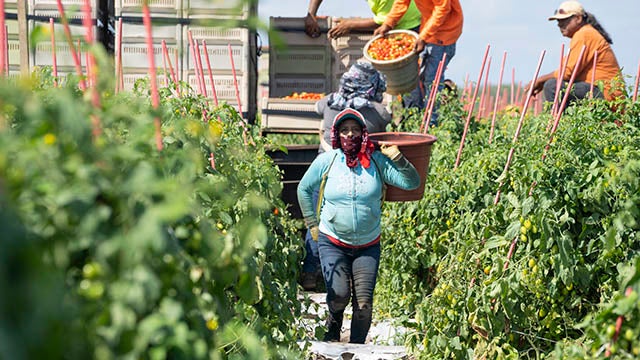Dan Glickman is the executive director of the Aspen Institute Congressional Program, a nongovernmental, nonpartisan educational program for members of the United States Congress, and a former US Secretary of Agriculture.
In a little over two weeks, nearly 40 of the world’s preeminent thought-leaders on hunger, sustainability and global food markets will descend on Marrakech, Morocco, to sit at the same table for three days of intense discussions. They will be coordinating collaboration across sectors to address the growing challenge of global food insecurity. These scientists, CEOs, non-profit executives, philanthropists, economists, and public servants span sectors and experiences. This group is also the Institute’s response to addressing what is one of the foremost challenges of this century.
The list of seemingly insurmountable crises facing our planet is growing long. The global stressors of climate change, human population growth, natural resource exhaustion, and systemic poverty each present their own unique challenges to humankind. Together, they form the perfect storm, a storm now recognized as global food insecurity.
Food insecurity promises to stymie even our best efforts to sustainably and equitably feed a growing world population that is projected to reach 9 billion by 2050. Whether we will be able to meet that challenge—without exceeding the carrying capacity of our planet—will depend upon our ability to work collaboratively with new partners to effectively implement large scale shifts in our food systems and our support of policies that elevate education and encourage leadership at a global level.
The good news is that we are making progress every day to innovate how food is produced and distributed within the sectors of food science, irrigation, and supply-chain efficiency, among others. Individually, these gains will undoubtedly advance our efforts to achieve global food security.
The bad news is that unless these sectors synchronize their ad hoc approaches, the potential for truly groundbreaking innovation will remain untapped. A collective approach to tackling food security will enable us to leverage the thought-leadership found in the fields of environmental science, nutrition and health, and the public and private sectors. With that, we will be better positioned to meet the growing global demand for food and to educate the next generation of leaders. But in a world defined by sectors and silos, how can we realistically expect the right hand to talk to the left?
The Institute’s new Food Security Strategy Group is positioned to answer that question. This initiative, a collaborative effort between the Institute’s Energy and Environment, Global Health and Development, and Middle East Programs, is our response to an urgent need for focused, sustained, and productive dialogue on food security at the highest levels of leadership.
Next month, Marrakech will be ground zero for the inaugural dialogue of the Strategy Group. We will aim to both define terms and goals and understand the important gaps in the current conversation where coordination among enlightened leaders is needed. It’s an ambitious task, but then again, so is the effort to feed the world’s growing population.

